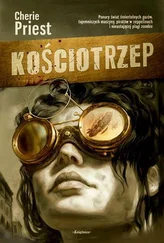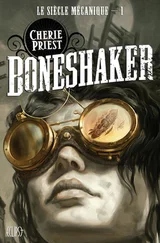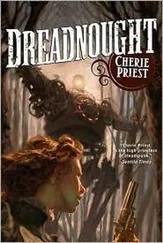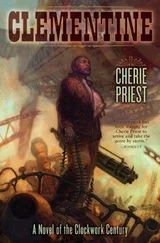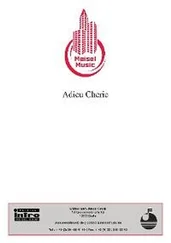Henry returned with a pass and a set of keys in hand. “Let’s go. The ticket girl says that the weather’s supposed to get even worse. A storm’s coming, spinning up out of the Gulf.”
“Little late in the year for that,” Maria grumbled. “You’d think the weather would be warmer, if that’s where it’s coming from.”
“You would indeed, but such is not our lot in life. Not today, anyway.”
They hiked against the wind until they reached a big gate, which opened with the turn of the largest key on Henry’s ring. Once inside, they were protected from the worst of the chill, for the fence and the ships themselves served to break up the gale. “They tried to talk me out of it, actually,” he told her, scanning the rows for the right slot. “They said we’d be crazy to fly today, and whatever we’re doing could wait for morning.”
“What did Mr. Troost tell them when he reserved the craft?”
“I’m not sure, but it had something to do with the war effort. I think he told them you’re a nurse, and I’m a doctor, and we’re running an emergency aid something-or-another to someplace. I’m sure the particulars were fascinating. He has a knack for detail.”
“Strange little man, that.”
“And you have a knack for understatement. Here, this is it: the Black Dove. ” He used another key to unlatch the ship’s anchor from a claw-style mooring, then pulled a lever inside the craft. The hook and chain retracted with a tinny grind, then disappeared into a side panel that closed behind them.
It didn’t look so bad. Open to the elements, more than not. Engine-powered, but controlled by foot pedal, so their feet would dangle over an open chassis through which they could watch the land pass by below.
“It’s sturdy enough,” Henry surmised. “We’ll freeze our noses off if we don’t wrap up, but then again, we might freeze them off anyway. I don’t know about you, but I can hardly feel mine anymore.”
They climbed inside and drew the frame doors shut behind them. The seats featured a long strap of good hemp canvas to serve as a belt, but it fastened across them both, securing them to little but each other. Henry worked up a blush, but Maria refused—she was glad for the closeness.
“We’ll both stay warmer this way,” she told him as she settled herself as comfortably as possible, without a hint of an improper struggle. “Now, I’ve never flown one of these before, but I’ve ridden in one. What can I do to help?”
“Navigate,” he said as he slipped a pair of goggles over his glasses and urged her to do the same. He used another key from the ring to remove a steel lock from around the ignition, then leaned out the window and deposited the keys and the lock into a basket provided for the purpose … and cranked the dirigible to life.
Its motor purred willingly, if with a faint clatter, while it warmed, then quivered, and then lifted them off the ground. Henry took an experimental turn or two with the thrusters, testing them for responsiveness. He fiddled with the steering mechanism and flipped switches and tugged levers.
Maria didn’t think this looked very complicated, in the grand scheme of things. She resolved to learn how to fly a dirigible upon her eventual return to Chicago—assuming she didn’t freeze to death in the sky above north Georgia. Well, assuming also that her mission was a success. And that the world was not overrun by necrotic leprosy.
Though, as the dirigible gained altitude, she considered that a plague might be all the more reason to learn how to fly. Victims of the ailment could run and eat, but they couldn’t chase her off the ground, could they?
Henry valiantly fought the drafts and currents, forcing the Black Dove high enough to pass the ridge. His gloved fingers were tight on the controls, and his eyes dashed back and forth between the readouts, the levers, and the sky. Without looking at Maria, he asked her, “I gave you Troost’s map, didn’t I?”
“Got it right here,” she said, withdrawing it from the satchel where she’d stashed it. Keeping a firm grip, she splayed it across her lap. “Do you see the southbound road?”
“No, but it can’t be far.”
He was right; it wasn’t far. They found it fast, puttering and swaying against the intermittent rain and wind, dipping up and down above the trees, only to drop back down into the valley as they soared past the wall, so near that Maria could’ve stuck out her hand and touched it. Her stomach dropped and lurched, but luckily she hadn’t eaten since the night before, so there was nothing present to cast out over Lookout Mountain as they careened off to the south.
The weather worked against them every mile of the way. It buffeted them head-on, and sometimes threatened to throw them off course. Henry wore himself out keeping the craft as steady as he could, and eventually found some violent rhythm to the trip. Maria couldn’t see his eyes behind the lenses, but she had a feeling that they were hard and unblinking.
“There’s a spyglass in my bag,” he shouted to her over the rushing air and rumbling motor.
“I’ll get it.” She nodded, and fished around until she found it.
“I’m not seeing much traffic down there, are you?”
“No,” she said loudly back, though her view through the spyglass was compromised by the lenses she wore to protect her eyes. “That’ll change as we approach Atlanta. It’s picking up even … even now.” She gestured at the road, then off to the side, where a large factory compound coughed out soot from three tall towers. “That’s Dalton, I believe.”
“I’m sure you’re right.”
“So”—she squinted back down at the map, and pointed to a spot with one gloved finger— “we’re about here. Still ninety miles from the city, I’d estimate, but I’ll keep my eyes open. If we’re lucky, they’re still quite a ways outside town.”
“If we were lucky, Troost would’ve gotten us a ride with a heater,” Henry said. His icy cheeks were round and red, and he wasn’t smiling.
“Just one more reason to hope we find them fast,” she replied, though she couldn’t feel her face at all, and her jaw must surely be freezing shut.
Talking was difficult, so they soon gave up and concentrated on their respective chores. Henry kept the craft aloft, and Maria watched the ground below, tracing the comings and goings of carts, horses, and diesel carriages as they chugged along the southbound route to the biggest city in the Confederacy.
She did not take her eyes off the road as she asked, “How much fuel does this thing hold?”
“Enough to get us to Atlanta, but not much farther. These little ones aren’t made for the long haul, but we’ll make it to the city,” he assured her. “Even fighting the sky like this.”
“Good,” she said quietly. And then she closed her eyes, listening for something she heard very faintly, behind them and off to their left. “Even if we take a detour or two?”
“Detour?” He frowned hard enough that the goggles dipped on his forehead. “Why would we detour?”
“Not a detour, then. Call it evasive action.”
Her ears pinpointed the noise and she turned her head far enough to catch it with her eyes. A ship was incoming, far enough away that she couldn’t suss out the details, but it wasn’t alone—and that was the main point of note. It had a friend, and that friend was approaching from the right.
“Two ships, Henry,” she said evenly. “Coming up behind us.”
“They could be merchants or military fellows,” he tried, but he didn’t sound convinced even as he said it. “This is a common enough trade route.”
“Henry, we’re being flanked.”
“That … can’t be by accident.”
Читать дальше

